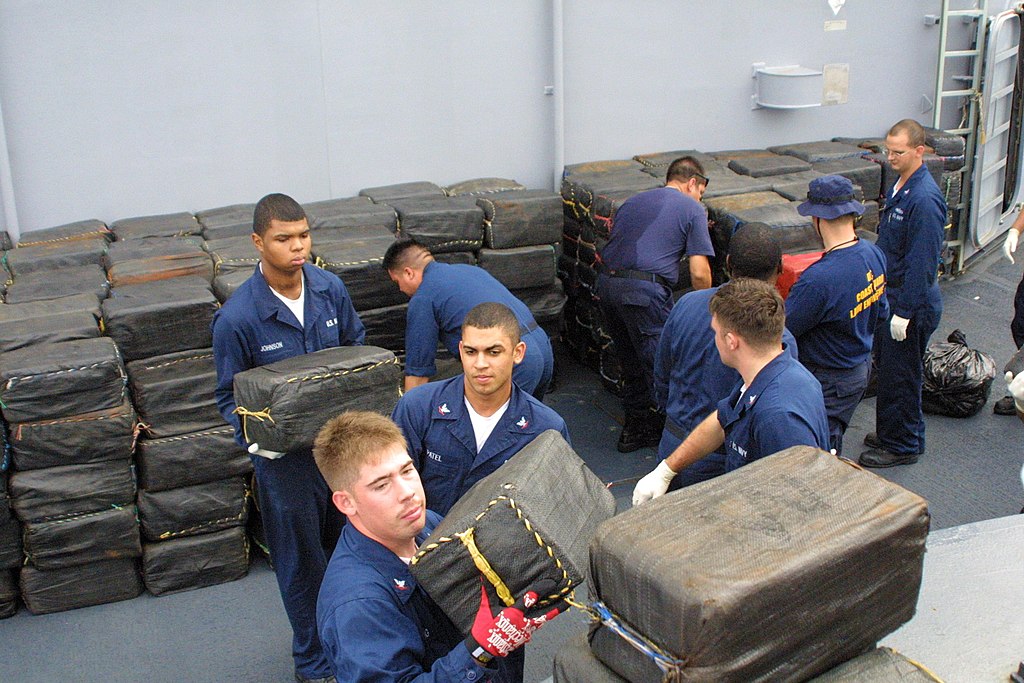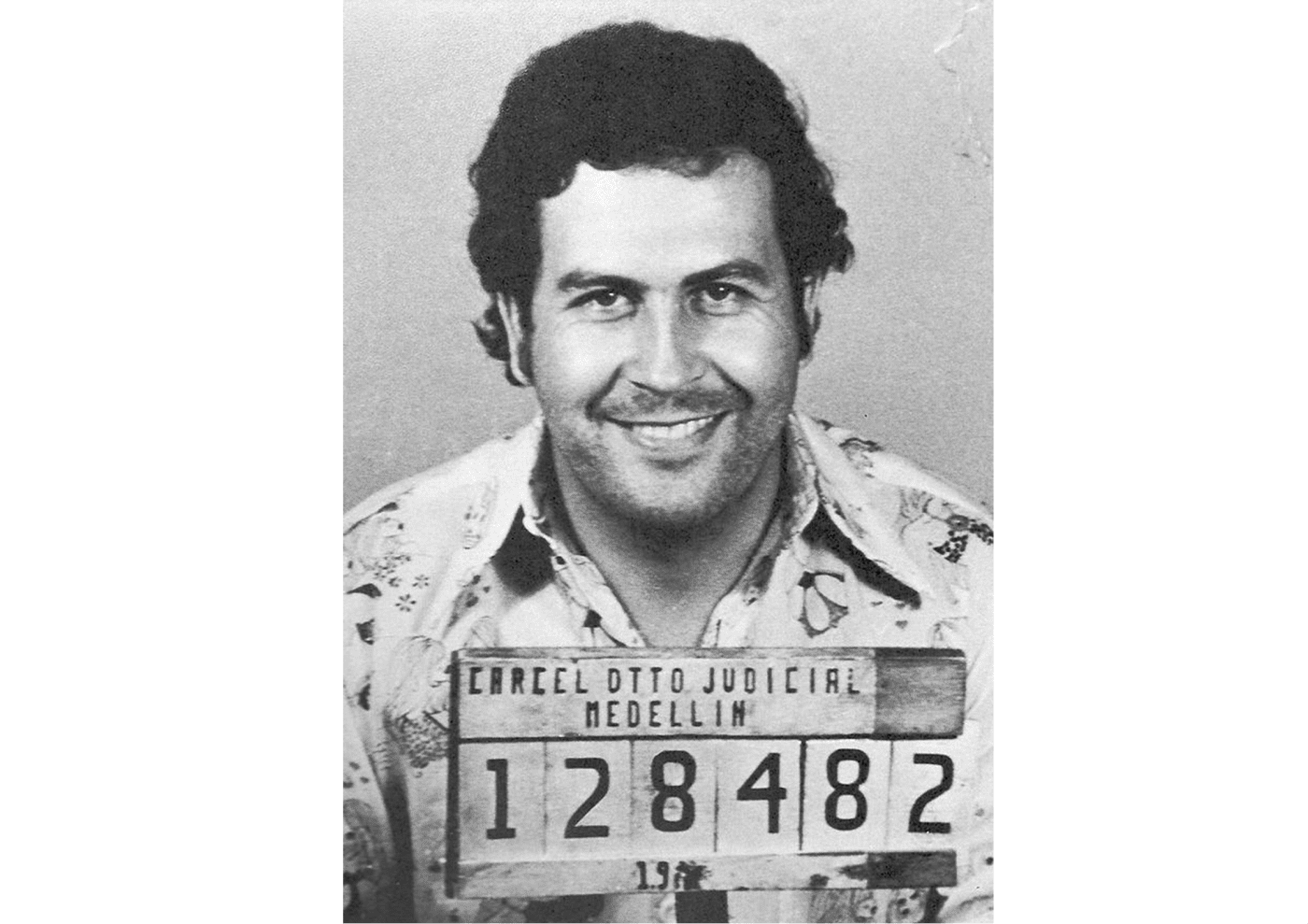This article is an opinion piece and its contents represent the standpoint of its author and not UPF Lund or The Perspective’s editorial board.
A week ago I went to cut my hair here in Lund, where I currently live. The barber asked me which country I come from. My answer was Colombia. Immediately, the barber replied, “Ah, Pablo”. He was referring to Colombia’s drug dealer Pablo Escobar. He noticed I understood well what he was referring to, thinking I would feel uncomfortable, but I wasn’t. Escobar is part of my country’s history and we have to accept that. And let’s be honest, he is the first thing that comes to most people’s mind when I say where I’m from, because Colombia is known for its c.., yeah I mean coffee.
On December 2, 2023, it was 30 years since the Colombian police took down Pablo Escobar in his hometown, Medellin. His full name: Pablo Emilio Escobar Gaviria. In Spanish-speaking countries, people often have two first names and two last names, but nobody presents themselves like this—except for him. He was the founder, leader, and most notorious member of the Medellin Cartel. Similar to many drug criminals, he came from a humble social background. He dropped out of school because his family could not pay for his education and instead got involved in crime. Escobar was a creation of the incapacity of the Colombian state to offer public services to its citizens, state corruption, and the “war on drugs”. In the 1970s, President Richard Nixon declared a “war on drugs” in the United States. As a result, states around the world follow his efforts to combat illicit drugs.
The only law that criminals don’t break is the law of supply and demand
H. L. Mencken, 1925
Escobar considered himself a businessman. As H. L. Mencken in 1925 referred to the Alcohol Prohibition in the U.S. in the 20s “The only law that criminals don’t break is the law of supply and demand”. Escobar was the pioneer in industrial-scale cocaine trafficking. He created a cartel—a group of similar independent individuals who join together to control prices and limit competition. At its peak, it supplied 80 per cent of the world’s cocaine.


Escobar’s abilities as a businessman gave him his extraordinary wealth. He then tried to replicate his success in politics. Escobar presented himself as a populist figure because of his humble background despite his lifestyle. The upper classes despised him for his background and popularity. He instigated anti-establishment sentiment among the disadvantaged communities. The 1980s was a time of rapid urbanisation in Latin America. Most of the migrants were not able to find a place to live, and the Colombian state failed to provide basic services to these people. Escobar found an opportunity where the Colombian state was absent. He provided water and electricity and built housing for the poor. In 1982, he was elected deputy congressman by Colombia’s Liberal Party. His attempts to join the political elite were crushed two years later by the nation’s then Justice Minister—Rodrigo Lara Bonilla—accusing him of criminal activity, and the party leader—Luis Carlos Galán—expelled Escobar from the party. By the time, both of them were on Escobar’s hit list.
For the Medellin cartel, the tension escalated and they declared a terror war on the Colombian state, assassinating Minister Lara Bonilla in April 1984. The Colombian state response—because of the incapacity of legal enforcement—was to sign the extradition of any cartel member to the United States. It was too little too late; Escobar had already achieved a level of state penetration which helped members of his cartel to avoid legal jurisdiction for years. The cartel used its economic power to eliminate judges, police, and journalists. In 1985, the nation’s Supreme Court was annihilated, and in 1989, presidential candidates were assassinated. One of them was Luis Carlos Galán, who had expelled Escobar from the Liberal Party five years earlier. Escobar eventually pushed the State to ban the extradition in 1991. He managed to negotiate his surrender and reside in a jail known as the “Cathedral”, which he built. It was his personal jail. Escobar controlled the guards and reorganized his Cartel while imprisoned. By 1992, Escobar’s activities inside the “Cathedral” were too much to accept for the State. President César Gaviria ordered Escobar to be sent to a military base in Colombia’s capital, Bogotá. Before he could be transferred, Escobar escaped.
By 1992, times had changed, and the public support that Escobar cultivated started to be undermined by his indiscriminate use of bombs against civilians, his diminished coffers, and the new unexpected allies from the Colombian state. The enemy of my enemy is my friend. The state formed an informal alliance with Escobar’s former criminal associates, now renamed People Persecuted by Pablo Escobar (PEPES), an emerging Cartel known as Cali Cartel. The United States participated in this alliance, they had the same objective to see Escobar dead. The PEPES’ objective was to hunt down Escobar and his family and associates. They gradually dismantled Escobar’s empire. The Colombian state, equipped with US technology, could now provide better information and equipment to the PEPES. The unconditional support of the Colombian state to the PEPES created a paramilitary army in the years to come. On December 2nd, 1993, with the days of glory far gone, Escobar was shot by the Colombian Police in Medellin.
Insanity is doing the same thing over and over again and expecting different results
Unknown
The “War on Drugs”, like the “War on Alcohol” of the 20th Century in the US, is an example of a disastrous policy, naked self-interest, and repeated ignorance of us as a society. From its inception, the drug war has led to fraud, corruption, violence, and death. Some time ago on Twitter, I saw this tweet: “Congratulations to Drugs for winning the War on Drugs”. The drugs didn’t even know that they were at war against us. The hell of drugs not only affects the drug addicts but also their families and society as a whole. The drug problem needs to be addressed and a change needs to be made. There’s a wise proverb that states: “Insanity is doing the same thing over and over again and expecting different results”.
A modern-day counterpart to Escobar himself is hard to identify. There is no single figure to have ever built a cocaine empire to rival his. Escobar’s reign of terror has long been gone and is just a memory, but his methods have been passed to criminals around the world. He successfully challenged the State, showing that extreme violence could force governments to negotiate. Escobar teaches us that the death of a drug trafficker just means the birth of a new one. Pablo Escobar’s legacy inspires numerous books, songs, and television shows. His legacy lives in the criminals who take advantage of the incapacity of the states to solve daily problems in low-income neighbourhoods. He lives in criminals around the world who want to get “quick” and “easy” money. Unfortunately, he lives on in the criminals who use minors for their activities, exploiting their innocence and the law’s restrictions. Finally, he lives on in the mind of my Swedish barber which I will return to next month because that haircut was good.
By Ernesto Santiago
December 8, 2023








